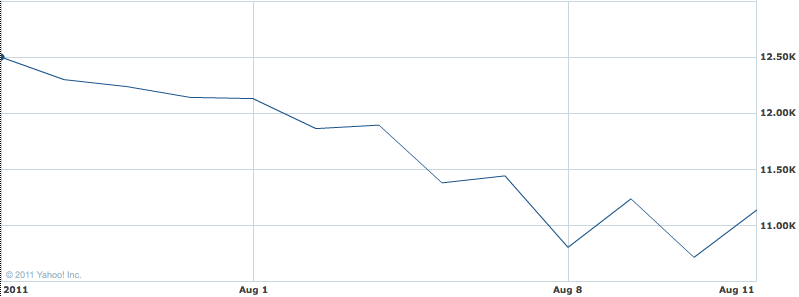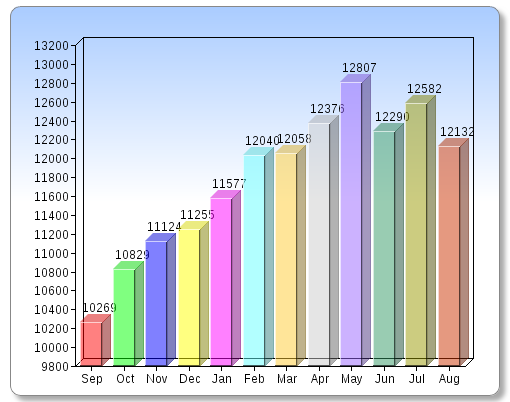Sooner or later, every website with a passing interest in personal finance posts some version of “The X Habits of Wealthy People”. You know how these lists are going to end before they start. Yeah, rich folks spend less than they earn and don’t drive ostentatious cars. Great, what else you got?
First, that’s not even true. Just because Warren Buffett inexplicably lives in a 53-year old house doesn’t mean that Larry Ellison or Paul Allen does. Despite what you’ve been told, frugality is only a tiny part of this. (But frugality is also the easiest personal finance subtopic to write about, which is why right now some idiot personal finance blogger is crafting a post on how you can save .1¢ per wipe if you buy toilet paper by the ton.)
A note on frugality: when I was 14, my best friend’s father was a successful eyeglass salesman. Regional sales manager, or something. Knowing I’d be entering the workforce soon, and wondering what I’d have to do to beat out the other applicants for that first coveted busboy position, I asked him what he looked for when hiring. His answer?
“Big spenders. I want a guy who orders the lobster and the most expensive bottle of wine, who wears Harry Rosen suits and drives a BMW.”
Why?
“Because he’ll be motivated. He’s got bills to pay and a lifestyle to maintain, so he has to make his quotas whether he wants to or not.”
There are plenty of people who spend less than they earn and who drive Ford Tauri. The vast majority of them aren’t rich.
If you’re not rich, and see no prospects of ever becoming rich, it’s not because you aren’t working hard enough. This should be obvious. Even if you cut out early every afternoon and only work 35 hours a week, how many hours a week do you think the world’s hardest-working rich person is putting in? 350? 35,000? No, clearly the relationship between hours put in and rewards achieved is not a direct one. Or at least not a linear one.
Here’s what rich people do that really does distinguish them from ordinary folk. These are easy to adopt, and don’t even require you to sacrifice that much in the short term, if at all. You just need to think differently.
1. They understand leverage. And its offspring, passive income. There’s an entire generation of financially responsible but unimaginative people who blame the Great Depression for their failure to lead dynamic lives, and who took the mantra “neither a borrower nor a lender be” as Scripture. (It’s actually Shakespeare. Hamlet.) Fortunately, those people are dying off.
Spend money to make money. And borrow it, too. You borrow money to leverage your existing assets. You don’t borrow money to finance a vacation. A 6% commercial bank loan to purchase an office building, whose offices you then lease out to tenants, who make rent payments to you that a) you use to cover your mortgage payments and b) write off your taxes, while you keep the difference, is money well borrowed. An unimaginative frugal person who doesn’t know any better sees that original bank loan as a sleeping tiger. A rich person sees it as the first step to a sustained cash flow.
2. Rich people aren’t “being lived”. As opposed to living. No wealthy person beseeches anyone for a raise. Or does the prep work, explaining his worth to the company and why he’s entitled to more. Being rich starts with the self-determination, as counterintuitive and pollyanaish as that sounds.
The thing is, you probably know this instinctively. Who’s more likely to get rich:
a) The college-educated junior account coordinator who stays late and delivers her sales reports to the boss a day early, hoping to get noticed to the point where she can become an account executive one day and do more of the same, or
b) The immigrant with a shaky command of English who borrows from his cousin to open a falafel stand?
The first couple of years, their incomes might not differ by much. The immigrant might even work longer hours. But his success is contingent on him, and no one else. So is his failure, if any. No one can promote him, but no one can fire him. The point isn’t that all immigrant food vendors get rich. The point is that by living self-determined lives, they’re in a better position to create wealth than the junior account coordinator who’s waiting for the person above her to transfer/get fired/have a baby.
If a rich person wants more money, he creates it. By soliciting another client. By creating and promoting another product. By using another passive income stream. Not by hoping to catch the boss during one of his rare generous moods.
3. They care about output, not input. See our prior post about this.
It doesn’t matter how many hours you worked, it matter how many widgets you created. In fact, it doesn’t even matter how many widgets you created, it matters how much revenue they brought in. And even that is less important than how much profit they generated. (And if you don’t understand the difference between revenue and profit, buy the freaking book already.)
Or take the office building example from above. Once you get enough good tenants in there to fill it, the money starts flowing in with marginal effort. If Tim Cook flies to Helsinki for a ski trip next week instead of going to work, a few thousand iPads are still going to be sold. But the employee who relies on income for sustenance has to apply himself for every dollar. Which brings us to:
4. Wealth ≠ income. Not even close. There’s a reason why the ultra-rich usually keep quiet when Congress discusses raising tax rates on high-income people. Because confiscating more and more of a hard-working person’s income has little bearing on a rich person’s ability to build wealth. Capital gains, IRA proceeds, investment appreciation…whatever its name, money that they don’t directly work for is what separates the rich from the never-will-be.
5. Dust yourself off. Even if you don’t pick up as many clients as you like, or go half a day without having to open the register, a wealthy-person-in-training has a permanent internal motivator; memories of how badly life sucked taking orders at the old job.
6. (Of course) Buy assets, sell liabilities. Put $150 a month in an IRA, or put it in cigarettes by the carton?
**Best Article of the Week in the 121st Edition of the Best of Money Carnival**






